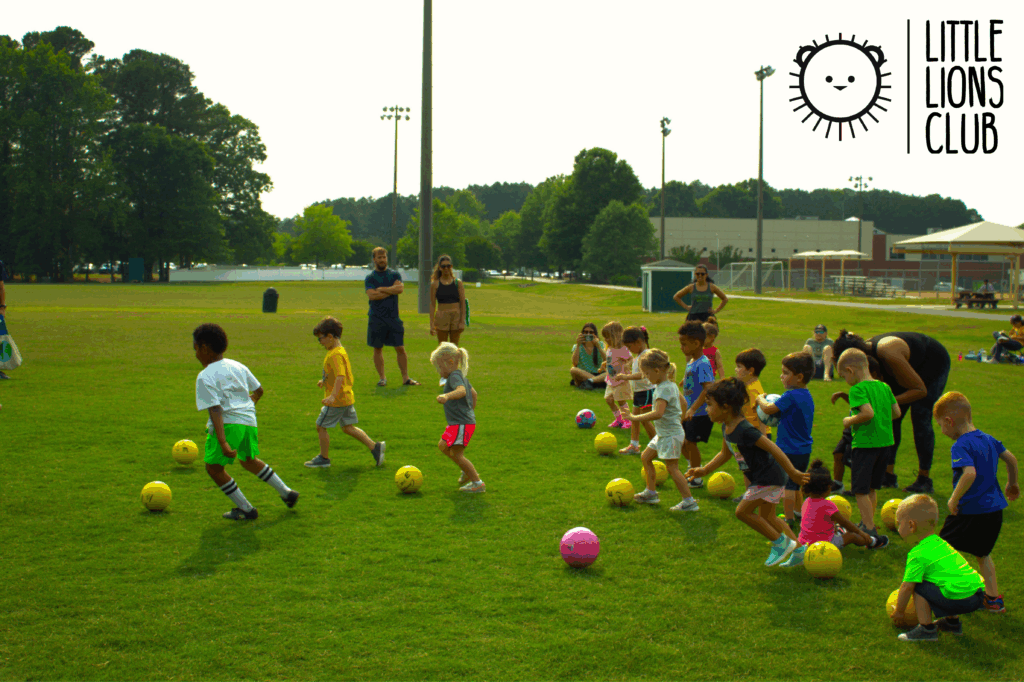Evaluating the Impact of the Little Lions Club on Young Children’s Emotional and Social Development
Written by Ema Stankova, Research Study Intern from the William and Mary Department of Psychological Sciences

The following was written by Ms. Stankova about the results of a study commissioned by the Little Lions Club, which will be available in publication soon…
This study explored how participation in the Little Lions Club (LLC) – an athletic-based early childhood program impacts children’s emotional and social development. LLC offers structured play, group activities, and skill-building games for children aged 2 to 5. The program intentionally integrates social-emotional learning (SEL) to support not only physical activity but also critical skills like emotional regulation, peer cooperation, empathy, and positive behavior.
Over a six-week period, children from local childcare centers were assigned to one of three groups: newly enrolled LLC participants, long-term LLC participants (enrolled for over two months), and a control group of children who did not participate in LLC. Parents completed a behavioral survey called the Strengths and Difficulties Questionnaire (SDQ) at the beginning and end of the study. The SDQ is a well-established tool that captures both challenges (like emotional difficulties or peer issues) and strengths (such as kindness and cooperation).
The study found that children who recently joined the LLC program showed the most immediate improvements, particularly in emotional symptoms like frustration, worry, or mood swings. These short-term participants had significantly lower emotional difficulty scores after just a few weeks in the program compared to children who did not participate at all. Long-term participants maintained stable functioning, suggesting possible protective effects of continued LLC involvement.
In contrast, children in the control group (not enrolled in LLC) showed declines in several areas, including increased emotional and peer-related difficulties. This highlights how the absence of structured, social learning environments during early childhood can impact behavioral health. While not all differences between groups were statistically significant, the overall trends suggest that participation in LLC supports emotional resilience and positive social behavior.
Importantly, the study’s results suggest that even brief exposure to the LLC program may help children better manage their feelings and build healthier relationships with peers. Parents in the LLC groups also reported more stable or improved behavior, reinforcing the potential value of the program from a caregiver’s perspective.
The study used secure, parent-friendly technology (SDQplus) to collect responses and protect confidentiality. Families were also supported with small incentives to encourage survey completion. Although the sample size was modest, the design and findings offer a promising starting point for future research.
In summary, the Little Lions Club appears to offer more than just physical play – it provides young children with emotional tools and social experiences that contribute to their overall well-being. For families, this means a safe, nurturing environment where kids can grow in confidence, compassion, and self-regulation. Future research with larger and more diverse samples will help confirm these findings and further explore how programs like LL can support children’s development during one of the most important stages of life.
